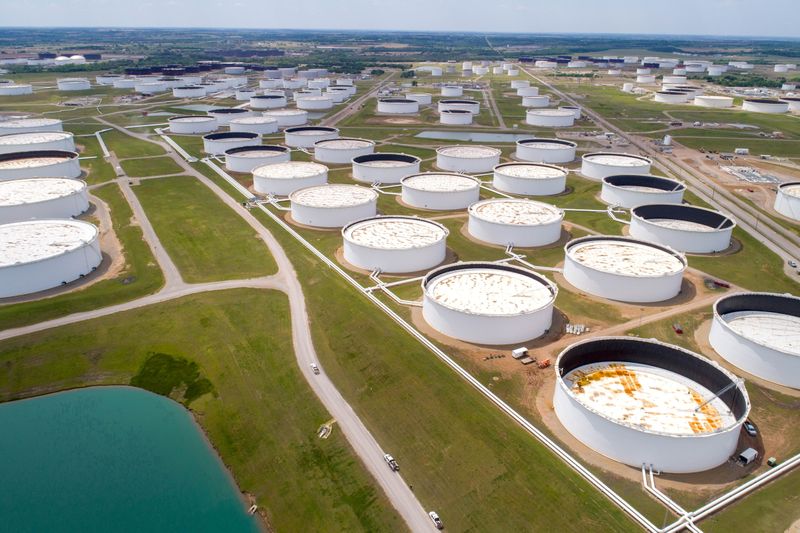By Stephanie Kelly
NEW YORK (Reuters) - Oil futures rose on Tuesday and were near multi-year highs as an energy supply crunch continued across the globe, while falling temperatures in China revived concerns over whether the world's biggest energy consumer can meet domestic heating needs.
The Brent crude benchmark rose 75 cents to settle at $85.08 a barrel. U.S. West Texas Intermediate (WTI) futures rose 52 cents to settle at $82.96 a barrel.
Prices have been climbing the last two months. Since the start of September, Brent has risen by about 19%, while WTI has gained around 21%.
"Supply-demand balances show that the market is experiencing a supply deficit, which is spurring deep inventory draws and driving prices upwards," said Louise Dickson, senior oil markets analyst at Rystad Energy. "This market tightness is expected to extend into most of 2022, and crude oil supply will only catch up with crude demand by the fourth quarter of next year."
With temperatures falling as the Northern Hemisphere winter approaches and heating demand increasing, prices of oil, coal and natural gas are likely to remain elevated, traders and analysts said.
Colder weather already has started to grip China, with close to freezing temperatures forecast for northern areas, according to AccuWeather.com.
The rising coal and natural gas prices in Asia are expected to cause some end-users to switch to lower-cost oil as an alternative. [MKTS/GLOB]
However, the power crunch that is sending prices higher is also hurting Chinese economic growth, which fell to its lowest level in a year, official data showed on Monday.
China's daily crude oil processing rate also fell last month, dropping to the lowest level since May of last year.
In Brazil, state-run oil company Petrobras confirmed it will not be able to meet "atypical demand" from fuel distributors in November that has surpassed its production capacity, raising fears of supply shortages in the country.
In the United States, crude stocks rose while gasoline and distillate inventories fell last week, according to market sources citing American Petroleum Institute figures on Tuesday.
Crude stocks rose by 3.3 million barrels for the week ended Oct. 15. Gasoline inventories fell by 3.5 million barrels and distillate stocks fell by 3 million barrels, the data showed, according to the sources, who spoke on condition of anonymity.

U.S. government data on inventories is due out on Wednesday.
(This story corrects the fourth paragraph to say supply will catch demand by Q4 next year, not demand will catch supply)